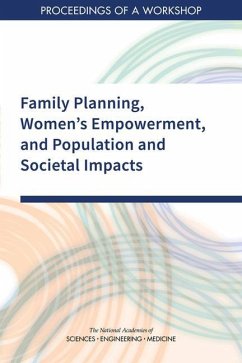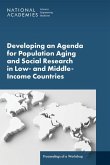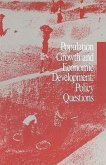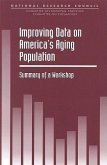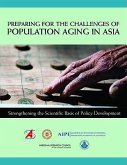"Over the past several decades, fertility rates have fallen substantially in low- and middle-income countries, and efforts to limit fertility, primarily through the implementation of family planning programs, have become increasingly widespread. Although there is a substantial scholarly literature on the determinants of contraceptive use and other measures to limit fertility and on the resulting differentials in fertility, relatively little is known about the role played by women's empowerment as both a determinant and a consequence of fertility decline. In addition, there continues to be little consensus about the link between fertility decline and broader societal impacts, including economic development. The National Academies of Sciences, Engineering, and Medicine convened a workshop, "Family Planning, Women's Empowerment, and Population and Societal Impacts," in September 2020. This event brought together experts and stakeholders to discuss conceptual, methodological, and policy issues regarding the relationships among family planning, women's empowerment, fertility decline, and population and societal impacts. The discussion was intended to inform research and policy focused on the issues of women's roles and empowerment and on longstanding questions surrounding the determinants and consequences of fertility reduction behavior. This publication summarizes the presentations and discussion of the workshop." --
Hinweis: Dieser Artikel kann nur an eine deutsche Lieferadresse ausgeliefert werden.
Hinweis: Dieser Artikel kann nur an eine deutsche Lieferadresse ausgeliefert werden.

